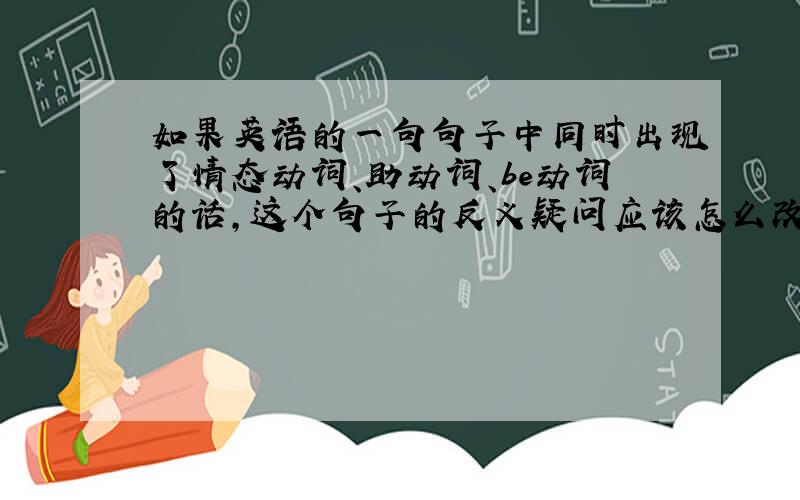如果英语的一句句子中同时出现了情态动词、助动词、be动词的话,这个句子的反义疑问应该怎么改?比如:1、They must have come to school,2.He must have watched the TV play the other day,3.The doctor must have been
来源:学生作业帮助网 编辑:作业帮 时间:2024/05/10 10:58:46

如果英语的一句句子中同时出现了情态动词、助动词、be动词的话,这个句子的反义疑问应该怎么改?比如:1、They must have come to school,2.He must have watched the TV play the other day,3.The doctor must have been
如果英语的一句句子中同时出现了情态动词、助动词、be动词的话,这个句子的反义疑问应该怎么改?
比如:1、They must have come to school,
2.He must have watched the TV play the other day,
3.The doctor must have been there the other day,
我主要想知道如何才能得到这些答案?为什么能得到,
如果英语的一句句子中同时出现了情态动词、助动词、be动词的话,这个句子的反义疑问应该怎么改?比如:1、They must have come to school,2.He must have watched the TV play the other day,3.The doctor must have been
must have done 表示某人肯定已经做了某事
一般中文里面有“肯定已经”,且语气表猜测,就会用到这类结构
相似的有need have done,某人本需要做某事但是却没有做
should have dene 某人本应该做某事但是却没有做
情态动词+have done 表示对过去事情的猜测 例如 must have done 是对过去事情的肯定猜测 所以回答用过去式 didn't they/he